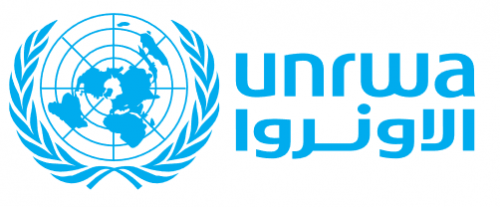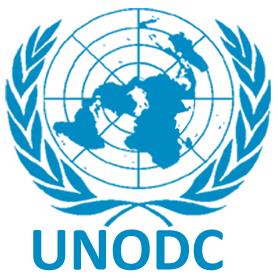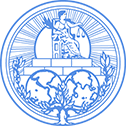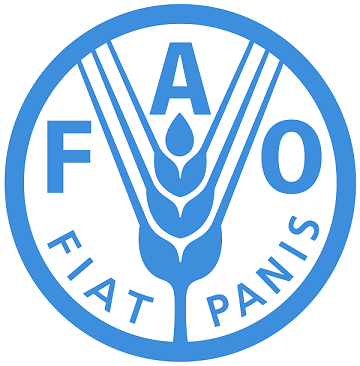Org. Setting and Reporting
The Office of Human Resources (OHR) is searching for a highly motivated and dynamic individual for this position which is located in the Administrative Law Division (ALD) of OHR in the Department of Management Strategy, Policy and Compliance (DMSPC). The Director of the Administrative Law Division (ALD) reports to the Assistant Secretary-General for Human Resources. The position is currently located at the New York duty station and may be relocated to Nairobi, subject to General Assembly consideration and budgetary approval. The Division is in charge of the implementation of the United Nations (UN) standards of conduct for all categories of personnel across the UN Secretariat. ALD provides client-focused, strategic, policy and legal advice on internal justice matters and represent the Secretary-General before the United Nations Dispute Tribunal. ALD handles disciplinary matters relating to Secretariat staff members, oversees and coordinates efforts and actions to prevent and respond to unsatisfactory conduct, and works to empower and support UN Secretariat managers in the exercise of their responsibilities to address conduct and discipline matters.
Responsibilities
The Director serves as a senior advisor to the Assistant Secretary-General and is responsible for: - Overseeing and coordinating actions required to address disciplinary cases for staff and non-staff personnel, including those deployed in the United Nations by Member States. - Overseeing and coordinating preventive efforts, including comprehensive risk management, as well as accountability mechanisms, for all categories of personnel. - Providing a rapid and Secretariat-wide coordinated response to address critical issues that affect the welfare and safety of personnel, serious reputational risks and/or other risks adversely impacting the Organization’s core values and norms (“critical incidents”). - Building capacities among Secretariat entities to promote and enforce the United Nations standards of conduct. - Interacting with departments and offices, including all those with a field presence, to support delegated decision-making processes and strengthened internal accountability functions, building-related capacities and interacting with Member States in the exercise of their accountability functions. - Supporting the Assistant Secretary-General and Under-Secretary-General in representing the Secretary-General on administrative law issues before governing and oversight bodies, including coordinating and overseeing the preparation of reports. - Providing strong leadership in overseeing, formulating and implementing the work programme of the Division, determining priorities, allocating resources for completion and delivery of high-quality outputs. - Overseeing recruitment of staff for the Division considering geographical and gender balance and other institutional values; managing, guiding, developing and coaching staff, fostering teamwork and a positive work environment. - Representing the Organization at international, inter-agency meetings, seminars, conferences providing substantive expertise as appropriate.
Competencies
Professionalism: Knowledge of administrative law; settlement of legal disputes and litigation. Shows pride in work and in achievements. Demonstrates professional competence and mastery of subject matter. Is conscientious and efficient in meeting commitments, observing deadlines and achieving results. Is motivated by professional rather than personal concerns. Shows persistence when faced with difficult problems or challenges; remains calm in stressful situations. Planning and Organizing: Develops clear goals that are consistent with agreed strategies. Identifies priority activities and assignments; adjusts priorities as required. Allocates appropriate amount of time and resources for completing work. Foresees risks and allows for contingencies when planning. Monitors and adjusts plans and actions as necessary. Uses time efficiently. Client Orientation: Considers all those to whom services are provided to be “clients” and seeks to see things from clients’ point of view. Establishes and maintains productive partnerships with clients by gaining their trust and respect. Identifies clients’ needs and matches them to appropriate solutions. Monitors ongoing developments inside and outside the clients’ environment to keep informed and anticipate problems. Keeps clients informed of progress or setbacks in projects. Meets timeline for delivery of products or services to client. Leadership: Serves as a role model that other people want to follow. Empowers others to translate vision into results. Is proactive in developing strategies to accomplish objectives. Establishes and maintains relationships with a broad range of people to understand needs and gain support. Anticipates and resolves conflicts by pursuing mutually agreeable solutions. Drives for change and improvement; does not accept the status quo. Shows the courage to take unpopular stands. Provides leadership and takes responsibility for incorporating gender perspectives and ensuring the equal participation of women and men in all areas of work; demonstrates knowledge of strategies and commitment to the goal of gender balance in staffing. Judgement/Decision making: Identifies the key issues in a complex situation, and comes to the heart of the problem quickly. Gathers relevant information before making a decision. Considers positive and negative impacts of decisions prior to making them. Takes decisions with an eye to the impact on others and on the Organization. Proposes a course of action or makes a recommendation based on all available information. Checks assumptions against facts. Determines that the actions proposed will satisfy the expressed and underlying needs for the decision. Makes tough decisions when necessary.
Education
Advanced university degree (Master's degree or equivalent) in law or related area is required. A first level university degree (Bachelor's degree or equivalent) in combination with two additional years of relevant work experience may be accepted in lieu of the advanced university degree.
Job - Specific Qualification
Not available.
Work Experience
Over 15 years of progressively responsible professional experience, of which at least 5 years are in administrative law is required. At least five years of senior managerial experience leading and managing large teams in international or non-governmental organizations is required. Experience in implementing change management and driving strategic improvements is required. Experience in building and maintaining effective partnerships across organizations is required. Experience in advancing the use of technology and data-driven approaches is required. Experience with policies, rules, regulations, and inter-governmental legislative machinery of the UN System or other comparable international organizations is desirable.
Languages
English and French are the working languages of the United Nations Secretariat. For this job opening, English is required. The table below shows the minimum required level for each skill in these languages, according to the UN Language Framework (please consult
https://languages.un.org for details).
Required Languages
| Language | Reading | Writing | Listening | Speaking |
|---|
| English | UN Level II | UN Level II | UN Level II | UN Level II |
Assessment
Evaluation of qualified candidates may include an assessment exercise which may be followed by competency-based interview.
Special Notice
This is a Regular Budget funded post. Appointment or assignment against this position is for an initial period of one year. The appointment or assignment and renewal thereof are subject to the availability of the post or funds, budgetary approval or extension of the mandate. At the United Nations, the paramount consideration in the recruitment and employment of staff is the necessity of securing the highest standards of efficiency, competence and integrity, with due regard to geographic diversity. All employment decisions are made on the basis of qualifications and organizational needs. The United Nations is committed to creating a diverse and inclusive environment of mutual respect. The United Nations recruits and employs staff regardless of gender identity, sexual orientation, race, religious, cultural and ethnic backgrounds or disabilities. The United Nations Secretariat is committed to achieving 50/50 gender balance and geographical diversity in its staff. Female candidates are strongly encouraged to apply for this position. For this position, applicants from the following Member States, which are unrepresented or under-represented in the UN Secretariat as of 31 August 2025, are strongly encouraged to apply: Andorra, Angola, Belize, Brunei Darussalam, China, Cuba, Democratic People's Republic of Korea, Dominica, Equatorial Guinea, Germany, Grenada, Guinea-Bissau, Indonesia, Israel, Japan, Kiribati, Kuwait, Lao People's Democratic Republic, Libya, Liechtenstein, Malta, Marshall Islands, Micronesia (Federated States of), Monaco, Nauru, Oman, Palau, Panama, Papua New Guinea, Paraguay, Qatar, Saint Lucia, Saint Vincent and the Grenadines, San Marino, Sao Tome and Principe, Saudi Arabia, Singapore, Solomon Islands, Timor-Leste, Turkmenistan, Tuvalu, United Arab Emirates, United States of America, Vanuatu. Staff members of the United Nations Secretariat must fulfil the lateral move requirements to be eligible to apply for this vacancy. Staff members are requested to indicate all qualifying lateral moves in their Personal History Profile (PHP) and cover letter. Staff members appointed to the current position are required to submit a financial disclosure statement upon assignment or appointment and annually thereafter.
United Nations Considerations
According to article 101, paragraph 3, of the Charter of the United Nations, the paramount consideration in the employment of the staff is the necessity of securing the highest standards of efficiency, competence, and integrity. Candidates will not be considered for employment with the United Nations if they have committed violations of international human rights law, violations of international humanitarian law, sexual exploitation, sexual abuse, or sexual harassment, or if there are reasonable grounds to believe that they have been involved in the commission of any of these acts. The term “sexual exploitation” means any actual or attempted abuse of a position of vulnerability, differential power, or trust, for sexual purposes, including, but not limited to, profiting monetarily, socially or politically from the sexual exploitation of another. The term “sexual abuse” means the actual or threatened physical intrusion of a sexual nature, whether by force or under unequal or coercive conditions. The term “sexual harassment” means any unwelcome conduct of a sexual nature that might reasonably be expected or be perceived to cause offence or humiliation, when such conduct interferes with work, is made a condition of employment or creates an intimidating, hostile or offensive work environment, and when the gravity of the conduct warrants the termination of the perpetrator’s working relationship. Candidates who have committed crimes other than minor traffic offences may not be considered for employment. Due regard will be paid to the importance of recruiting the staff on as wide a geographical basis as possible. The United Nations places no restrictions on the eligibility of men and women to participate in any capacity and under conditions of equality in its principal and subsidiary organs. The United Nations Secretariat is a non-smoking environment. Reasonable accommodation may be provided to applicants with disabilities upon request, to support their participation in the recruitment process. By accepting a letter of appointment, staff members are subject to the authority of the Secretary-General, who may assign them to any of the activities or offices of the United Nations in accordance with staff regulation 1.2 (c). Further, staff members in the Professional and higher category up to and including the D-2 level and the Field Service category are normally required to move periodically to discharge functions in different duty stations under conditions established in ST/AI/2023/3 on Mobility, as may be amended or revised. This condition of service applies to all position specific job openings and does not apply to temporary positions. Applicants are urged to carefully follow all instructions available in the online recruitment platform, inspira, and to refer to the Applicant Guide by clicking on “Manuals” in the “Help” tile of the inspira account-holder homepage. The evaluation of applicants will be conducted on the basis of the information submitted in the application according to the evaluation criteria of the job opening and the applicable internal legislations of the United Nations including the Charter of the United Nations, resolutions of the General Assembly, the Staff Regulations and Rules, administrative issuances and guidelines. Applicants must provide complete and accurate information pertaining to their personal profile and qualifications according to the instructions provided in inspira to be considered for the current job opening. No amendment, addition, deletion, revision or modification shall be made to applications that have been submitted. Candidates under serious consideration for selection will be subject to reference checks to verify the information provided in the application. Job openings advertised on the Careers Portal will be removed at 11:59 p.m. (New York time) on the deadline date.
No Fee
THE UNITED NATIONS DOES NOT CHARGE A FEE AT ANY STAGE OF THE RECRUITMENT PROCESS (APPLICATION, INTERVIEW MEETING, PROCESSING, OR TRAINING). THE UNITED NATIONS DOES NOT CONCERN ITSELF WITH INFORMATION ON APPLICANTS’ BANK ACCOUNTS.








